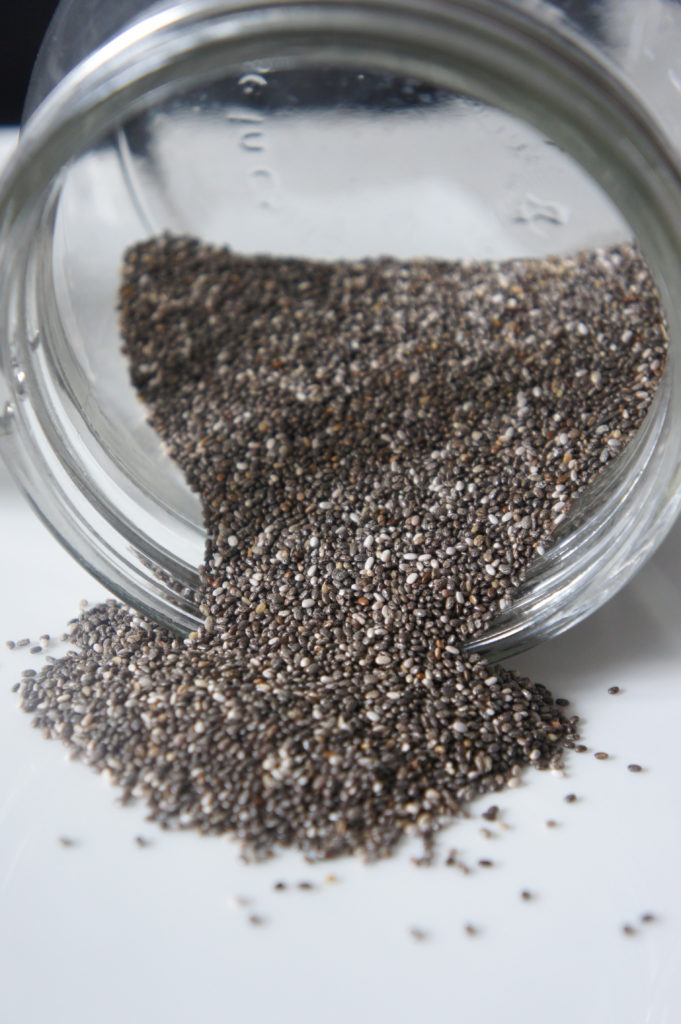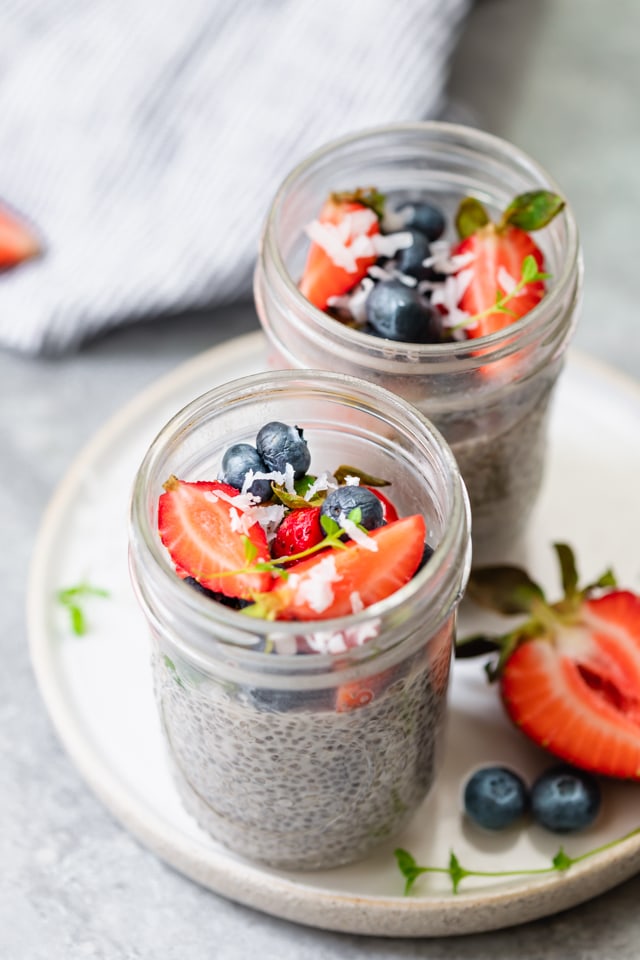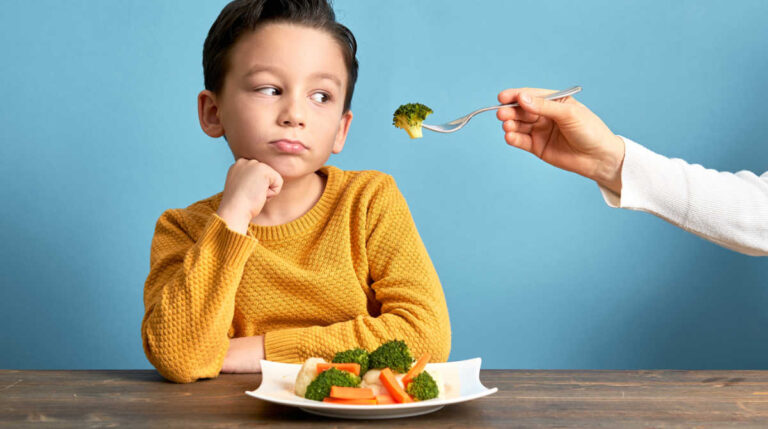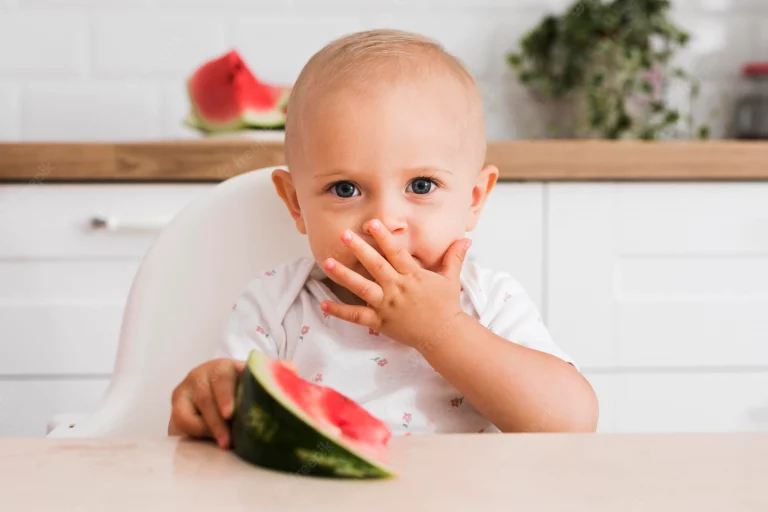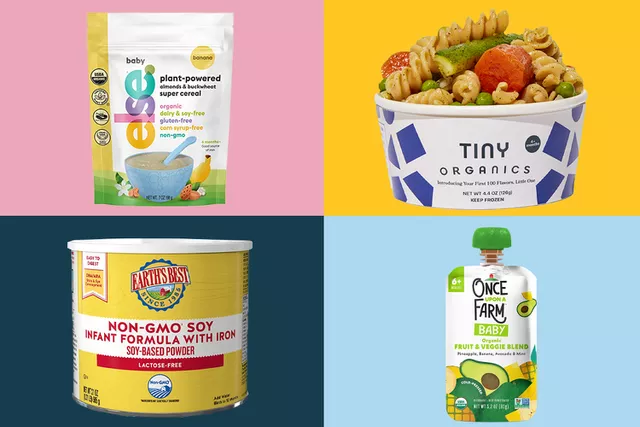Chia Seeds
Chia seeds are the edible seeds of the Salvia hispanica plant native to Central America. They are a small but mighty seed in the realm of nutrition.
1 ounce of Chia Seeds
Calories: 137
Carbohydrate: 12.3g (4%)
Dietary Fiber: 10.6g
Total fat: 8.6g (13%)
Omega-3: 4915mg
Protein: 4.4g (9%)
Calcium: 18%
Phosphorus: 27%
Manganese: 30%
Iron: 14%
Chia seeds are a great source of plant-based protein which is especially important for those on a vegetarian or vegan diet. They are also high in iron which is important for those who adhere to a plant-based diet since meat is a primary source of iron.
Chia seeds are also high in antioxidants which help protect the body against free radicals in the body. Also, the high content of both manganese and calcium helps improve bone health.
Omega-3’s are a polyunsaturated fat with many benefits. Omega-3’s are an essential fatty acid which means it is obtained from the diet because the body does not produce it. Omega-3’s are particularly beneficial to heart health because they are anti-inflammatory, help lower triglycerides, can increase HDL “good cholesterol,” reduce blood pressure, and prevent blood clots and plaque build-up.
Chia seeds are also high in fiber. Fiber helps support regular bowel movements. There are two different types of fiber. Soluble fiber binds to water and helps soften the stool and slow down transit time. Insoluble fiber adds “roughage” or “bulk” to the stool which helps with constipation and increase transit time. High fiber diets improve colon health by acting as a natural cleanser and decreasing the risk of diverticulitis and inflammation. Fiber acts as a source of food for the good bacteria in the gut. Fiber also promotes satiety and decreases spikes in blood sugar.
It is easy to incorporate chia seeds into your diet. Simply sprinkle in pancake, muffin, and bread batters, add to smoothies or salads, add a spoon to casseroles, or mix in with some oatmeal. Check out some of the recipes below for more ideas!
Chia Seed Pudding
Ingredients
2 tablespoons chia seeds
1/2 cup of almond milk or milk of choice
1 teaspoon honey
Choice of fruit for topping
Instructions
1. Pour ingredients into a jar and mix well.
2. Let settle for 2-3 minutes then mix again very well until you see no clumping.
3. Cover the jar and store in the fridge overnight or for at least 2 hours.
Honey Almond Chia Granola
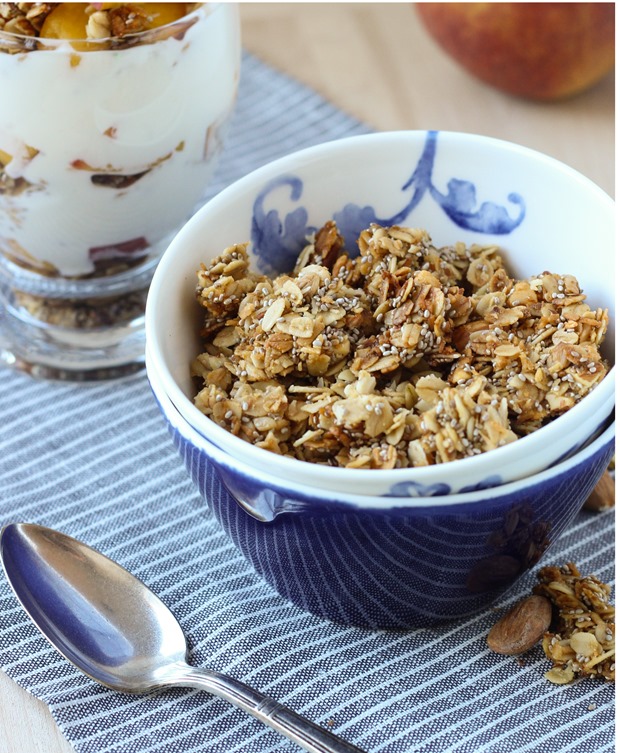 Ingredients
Ingredients
2 cups rolled oats
3/4 cups raw almonds, roughly chopped
1/2 cup chia seeds
1/2 cup shredded unsweetened coconut
1/3 cup honey
1/3 cup coconut oil
1 tablespoon coconut sugar (or brown sugar)
1/2 teaspoon salt
1 teaspoon vanilla extract
2 tablespoons egg white (from one egg)
Instructions
- Preheat the oven to 300°F and line a baking sheet with parchment paper.
- In a large bowl, combine rolled oats, almonds, chia seeds, salt and shredded coconut.
- In a separate small bowl, combine the honey, coconut oil, coconut sugar, vanilla extract and two tablespoons of egg white. Pour wet ingredients into the dry and stir until everything is mixed thoroughly. Spread mixture onto baking sheet so that it is a large, flat rectangular shape. Bake in oven for about 45 minutes or until golden brown.
- If you prefer not to have large chunks of granola then remove it from the oven at 30 minutes and stir before cooking the remainder of the time. Otherwise, allow granola to cool for at least 30 minutes before breaking up into large chunks.
- Store in an airtight container for up to two weeks or top a parfait with freshly sliced peaches and consume immediately.












